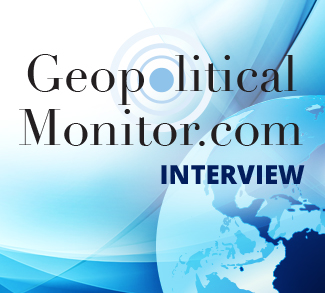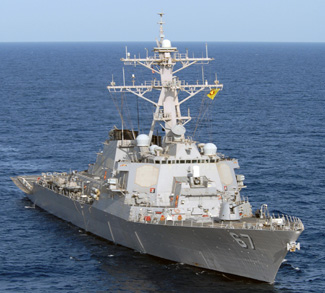Geopoliticalmonitor sits down with Timothy Heath to discuss recent developments in the South China Sea dispute. Timothy Heath is a World Politics Review Analyst and Senior Analyst at the RAND Corporation.
From the US point of view, what’s at stake in the South China Sea?
The US has two main interests in the South China Sea: First, it seeks to uphold freedom of the seas, so all countries can continue to pass through freely through these waterways. Second, the US seeks peace and stability. While the US is not taking a position on the actual territorial claims, it has an interest in seeing differences are resolved peacefully.
From China’s point of view, what’s at stake in the South China Sea?
China regards these waters as falling under its sovereignty. Its interests in controlling the waters are strategic and economic. Strategically, the South China Sea guards the country’s vulnerable southern flank. China has important naval bases in the South China Sea, especially Hainan Island, where nuclear submarines are based. The South China Sea also encompasses vital sea lines of communication through which most of China’s trade and energy imports pass. Economically, the South China Sea offers rich fishing grounds and potentially lucrative mineral and energy deposits.
Does China’s assertive stance on the South China Sea mark a turning point in Chinese foreign policy?
China’s assertive stance in the South China Sea is symptomatic of a broader shift in its foreign policy. Chinese leaders have directed more active efforts to both strengthening control of the country’s core interests – exemplified in the hardening stance of the South China Sea – and reforming aspects of the regional and international order. Examples of the latter include the promotion of alternative economic and security arrangements including the “One Belt One Road,” “Asian Infrastructure Investment Bank” (AIIB), and the Conference on Interaction and Confidence Building (CICA).
What can the United States do to ensure that the South China Sea remains international waters?
To ensure the SCS remains international waters, the United States can continue to work with many Southeast Asian countries to patrol the waters and advocate for restraint by all disputants. The more countries work together to uphold the freedom of the seas and regional stability, the harder it will be for China to unilaterally dominate the SCS.
How will President Obama’s decision to lift the Vietnam arms embargo affect regional security dynamics?
The decision will antagonize Beijing, but it will also send a powerful signal to China that its behavior regarding the SCS is alienating countries in the region. Clear evidence that the region is coalescing into a group that upholds freedom in the South China Sea will incentivize China to exercise restraint and thus can provide a stabilizing influence.
Is the US ‘Asia Pivot’ dead, or is it just getting started?
The Asia Pivot is well underway and will likely continue to grow in coming years, as Asia’s importance to the United States and the global economy increases.
How dangerous is the current situation in the South China Sea?
There is a growing risk of some sort of miscalculation that leads to a crisis. To minimize that possibility, it is imperative that leaders of all countries involved, including the United States, continue to meet and discuss ways of peacefully managing differences. Overall, however, the risk of war remains low, as China currently has little interest in fighting a war over these remote waters.




